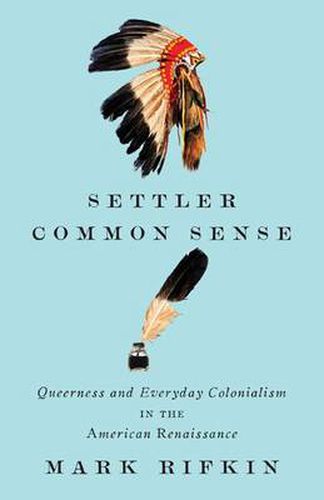Readings Newsletter
Become a Readings Member to make your shopping experience even easier.
Sign in or sign up for free!
You’re not far away from qualifying for FREE standard shipping within Australia
You’ve qualified for FREE standard shipping within Australia
The cart is loading…






In analyzing Nathaniel Hawthorne’s House of the Seven Gables, Rifkin shows how the novel draws on Lockean theory in support of small-scale landholding and alternative practices of homemaking. The book invokes white settlers in southern Maine as the basis for its ethics of improvement, eliding the persistent presence of Wabanaki peoples in their homeland. Rifkin suggests that Henry David Thoreau’s Walden critiques property ownership as a form of perpetual debt. Thoreau’s vision of autoerotic withdrawal into the wilderness, though, depends on recasting spaces from which Native peoples have been dispossessed as places of non-Native regeneration. As against the turn to nature, Herman Melville’s Pierre presents the city as a perversely pleasurable place to escape from inequities of land ownership in the country. Rifkin demonstrates how this account of urban possibility overlooks the fact that the explosive growth of Manhattan in the nineteenth century was possible only because of the extensive and progressive displacement of Iroquois peoples upstate.
Rifkin reveals how these texts’ queer imaginings rely on treating settler notions of place and personhood as self-evident, erasing the advancing expropriation and occupation of Native lands. Further, he investigates the ways that contemporary queer ethics and politics take such ongoing colonial dynamics as an unexamined framework in developing ideas of freedom and justice.
$9.00 standard shipping within Australia
FREE standard shipping within Australia for orders over $100.00
Express & International shipping calculated at checkout
In analyzing Nathaniel Hawthorne’s House of the Seven Gables, Rifkin shows how the novel draws on Lockean theory in support of small-scale landholding and alternative practices of homemaking. The book invokes white settlers in southern Maine as the basis for its ethics of improvement, eliding the persistent presence of Wabanaki peoples in their homeland. Rifkin suggests that Henry David Thoreau’s Walden critiques property ownership as a form of perpetual debt. Thoreau’s vision of autoerotic withdrawal into the wilderness, though, depends on recasting spaces from which Native peoples have been dispossessed as places of non-Native regeneration. As against the turn to nature, Herman Melville’s Pierre presents the city as a perversely pleasurable place to escape from inequities of land ownership in the country. Rifkin demonstrates how this account of urban possibility overlooks the fact that the explosive growth of Manhattan in the nineteenth century was possible only because of the extensive and progressive displacement of Iroquois peoples upstate.
Rifkin reveals how these texts’ queer imaginings rely on treating settler notions of place and personhood as self-evident, erasing the advancing expropriation and occupation of Native lands. Further, he investigates the ways that contemporary queer ethics and politics take such ongoing colonial dynamics as an unexamined framework in developing ideas of freedom and justice.